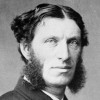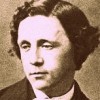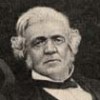No one, whether poet or orator, ever yet thought anyone else better than himself. This is the case even with bad ones.
[Nemo umquam neque poëta neque orator fuit, qui quemquam meliorem quam se arbitraretur. Hoc etiam malis contingit.]
Marcus Tullius Cicero (106-43 BC) Roman orator, statesman, philosopher
Epistulae ad Atticum [Letters to Atticus], Book 14, Letter 20, sec. 3 (14.20.3) (44 BC) [tr. Shuckburgh (1900), # 724]
(Source)
At Atticus' suggestion that Cicero write a speech for Brutus to give before the people of Rome. Cicero goes on to suggest this will be even more true for someone gifted and erudite, like Brutus, whose oratorical tastes and style are different from Cicero's.
(Source (Latin)). Alternate translations:There has never yet been either a poet or an orator who did not consider himself the greatest in the world.
[ed. Harbottle (1906)]No one, whether poet or orator, ever thought anyone better than himself. This is so even in the case of bad ones.
[tr. Windstedt (Loeb) (1913)]There never was a poet or an orator who thought any one better than himself.
[tr. McKinlay (1926), # 104]There was never a poet or orator yet who thought anyone better than himself. This applies even to the bad ones.
[tr. Shackleton Bailey (1968)]
Quotations about:
best
Note not all quotations have been tagged, so Search may find additional quotes on this topic.
People who put slipcovers, doilies, plastic protectors, and cellophane on everything good that they own rarely live to see an occasion so good that all these covers are removed.
Judith Martin (b. 1938) American author, journalist, etiquette expert [a.k.a. Miss Manners]
Miss Manners’ Guide to Excruciatingly Correct Behavior, Part 1 “Introduction,” “Some Thoughts on the Impulse Rude” (1983)
(Source)
I have the simplest tastes. I am always satisfied with the best.
Oscar Wilde (1854-1900) Irish poet, wit, dramatist
(Attributed)
(Source)
Quoted in Edgar Saltus, Oscar Wilde: An Idler's Impression (1917), as a comment made to him by Wilde.
Also attributed to Winston Churchill, with less foundation.
For more discussion about this quotation: I Have the Simplest Tastes; I Am Always Satisfied with the Best – Quote Investigator.
Who does the best his circumstance allows
Does well, acts nobly; angels could no more.Edward Young (1683-1765) English poet
Poem (1742-11), “Night the 2nd: On Time, Death, and Friendship,” ll. 91-92, The Complaint: Or, Night Thoughts, Vol. 1 (1744)
(Source)
The best is the enemy of the good.
[Il meglio, è l’inimico del bene.]
Voltaire (1694-1778) French writer [pseud. of Francois-Marie Arouet]
Letter (1743-06-18) to the Duc de Richelieu
(Source)
A signature phrase of Voltaire's, attributed (by him) to a wise or sage Italian. His French translation is "Le mieux est l’ennemi du bien." Other mentions include an entry on "Art Dramatique" in his Philosophical Dictionary (1764), and the poem "La Bégueule" (1772).
The corruption of the best things gives rise to the worst.
David Hume (1711-1776) Scottish philosopher, economist, historian, empiricist
The Natural History of Religion, ch. 10 “With Regard to Courage or Abasement” (1757)
(Source)
Hume actually calls this "the vulgar observation," an English translation of the well-known Latin phrase corruptio optimi pessima.
Culture, the acquainting ourselves with the best that has been known and said in the world, and thus with the history of the human spirit.
You’re mad, bonkers, off your head … but I’ll tell you a secret … all of the best people are.
Lewis Carroll (1832-1898) English writer and mathematician [pseud. of Rev. Charles Lutwidge Dodgson]
(Spurious)
This is attributed on many pages as a quote from Carroll's Alice in Wonderland. No such quote exists in the book, and the word "bonkers" does not appear until the 1940s. This appears to be a paraphrase of lines from the 2010 Tim Burton adaptation of Carroll's work (screenplay by Linda Woolverton):HATTER: Have I gone mad?
ALICE: [checking his temperature] I'm afraid so. You're entirely bonkers. But I'll tell you a secret. All the best people are.
“The best moments in my life,” I said, “have come because I loved somebody.”
“Yeah,” he said.
“And the worst,” I said.
“Yeah,” he said.
Now Jesus himself saw the power that competition holds over men. He did not ignore it. Yet he does something with the conception of competition that hadn’t been done before. He takes the conception which has been used for lower purposes and rescues it from many of its dangers, by suggesting a higher method of its use. This is how he applied the term to his disciples. He saw them in danger of using it for low purposes. They wanted to compete for reputation and position — “which of them should be accounted greatest?” Jesus says so, if you must use the power of competition, if you must compete with on another, make it as noble as you can by using it on noble things. Use it for a fine, unselfish thing. “He that is greatest among you shall serve.” Use it for human good. Who shall be the most useful. Compete with one another in humility. See which can be the truest servant. It seems that Christ says, “Use it, but use it for higher and holier purposes. Use it not to surpass one another in esteem, but use it to increase the amount of usefulness and brother-help.” Such conceptions of competition lead to the surprising and ennobling position that there can be competition without hate and jealousy. Behold! You can struggle to beat and yet rejoice to be beaten.
Martin Luther King, Jr. (1929-1968) American clergyman, civil rights leader, social activist, preacher
“Cooperative Competition / Noble Competition,” sermon outline
(Source)
Whatever you are, be a good one.
William Makepeace Thackeray (1811-1863) English novelist
(Attributed)
Attributed in Laurence Hutton, "A Boy I Knew," St Nicholas Magazine (Mar 1897), where it was originally given as "Whatever you are, try to be a good one." Often attributed to Abraham Lincoln (first recorded in 1946). For more information, see here.
We are challenged on every hand to work untiringly to achieve excellence in our lifework. Not all men are called to specialized or professional jobs; even fewer rise to the heights of genius in the arts and sciences; many are called to be laborers in factories, fields and streets. But no work is insignificant. All labor that uplifts should be undertaken with painstaking excellence. If a man is called to be a street sweeper he should sweep streets even as Michelangelo painted, or Beethoven composed music, or Shakespeare wrote poetry. He should sweep streets so well that all the hosts of heaven and earth will pause to say “Here lived a great street sweeper who did his job well.”
I had applied for the nuclear submarine program, and Admiral Rickover was interviewing me for the job. It was the first time I met Admiral Rickover, and we sat in a large room by ourselves for more than two hours, and he let me choose any subjects I wished to discuss. Very carefully, I chose those about which I knew most at the time, current events, seamanship, music, literature, naval tactics, electronics, gunnery and he began to ask me a series of questions of increasing difficulty. In each instance, he soon proved that I knew relatively little about the subject I had chosen.
He always looked right into my eyes, and he never smiled. I was saturated with cold sweat.
Finally, he asked a question and I thought I could redeem myself. He said, “How did you stand in your class at the Naval Academy?” Since I had completed my sophomore year at Georgia Tech before entering Annapolis as a plebe, I had done very well, and I swelled my chest with pride and answered, “Sir, I stood fifty-ninth in a class of 820!”
I sat back to wait for the congratulations, which never came. Instead, the question: “Did you do your best?” I started to say, “Yes, sir,” but I remembered who this was and recalled several of the many times at the Academy when I could have learned more about our allies, our enemies, weapons, strategy, and so forth. I was just human. I finally gulped and said, “No, sir, I didn’t always do my best.”
He looked at me for a long time, and then turned his chair around to end the interview. He asked one final question, which I have never been able to forget or to answer. He said, “Why not?”
I sat there for a while, shaken, and then slowly left the room.
Then, do not have one mind, and one alone
that only your opinion can be right.
Whoever thinks that he alone is wise,
his eloquence, his mind, above the rest,
come the unfolding, shows his emptiness.[μή νυν ἓν ἦθος μοῦνον ἐν σαυτῷ φόρει,
ὡς φὴς σύ, κοὐδὲν ἄλλο, τοῦτ᾽ ὀρθῶς ἔχειν.
ὅστις γὰρ αὐτὸς ἢ φρονεῖν μόνος δοκεῖ,
ἢ γλῶσσαν, ἣν οὐκ ἄλλος, ἢ ψυχὴν ἔχειν,
οὗτοι διαπτυχθέντες ὤφθησαν κενοί.]Sophocles (496-406 BC) Greek tragic playwright
Antigone, l. 705ff [Haemon] (441 BC) [tr. Wyckoff]
(Source)
Original Greek. Alt. trans.:Then cleave not solely to this principle --
Thy words, no other man's, are free from error.
For whoso thinks that he alone is wise,
That his discourse and reason are unmatched,
He, when unwrapt, displays his emptiness.
[tr. Donaldson (1848)]Therefore, my father, cling not to one mood,
And deem not thou art right, all others wrong.
For whoso thinks that wisdom dwells with him,
That he alone can speak or think aright,
Such oracles are empty breath when tried.
[tr. Storr (1859)]Do not, then, bear one mood only in yourself: do not think that your word and no other, must be right. For if any man thinks that he alone is wise -- that in speech or in mind he has no peer -- such a soul, when laid open, is always found empty.
[tr. Jebb (1891)]Oh, do not, then, retain thy will
And still believe no sense but thine
Can judge aright; the man who proudly thinks
None but himself or eloquent or wise,
By time betrayed is branded for an idiot.
[tr. Werner (1892)]Wear not, then, one mood only in thyself; think not that thy word, and thine alone, must be right. For if any man thinks that he alone is wise, -- that in speech, or in mind, he hath no peer, -- such a soul, when laid open, is ever found empty.
[tr. Jebb (1917)]I beg you, do not be unchangeable:
Do not believe that you alone can be right.
The man who thinks that,
The man who maintains that only he has the power
To reason correctly, the gift to speak, to soul ––
A man like that, when you know him, turns out empty.
[tr. Fitts/Fitzgerald (1939), ll. 564 ff]Therefore I say,
Let not your first thought be your only thought.
Think if there cannot be some other way.
Surely, to think your own the only wisdom,
And yours the only word, the only will,
Betrays a shallow spirit, an empty heart.
[tr. Watling (1947), ll. 602 ff]And now, don't always cling to the same anger,
Don't keep saying that this, and nothing else, is right.
If a man believes that he along has a sound mind,
And no one else can speak or think as well as he does,
Then, when people study him, they'll find an empty book.
[tr. Woodruff (2001)]So, don’t be so single-minded. You said it yourself quite rightly: he who thinks that he’s the only one with a brain or a tongue or a soul, if you open him up you’ll find that he’s a hollow man.
[tr. Theodoridis (2004)]So don’t let your mind dwell on just one thought,
that what you say is right and nothing else.
A man who thinks that only he is wise,
that he can speak and think like no one else,
when such men are exposed, then all can see
their emptiness inside.
[tr. Johnston (2005), ll. 799 ff]Do not wear one and only one frame of mind in yourself,
that what you say, and nothing else, is right.
Whoever imagines that he and he alone has sense
or has a tongue or an essence that no other has,
these men, when unfolded, are seen to be empty.
[tr. Tyrell/Bennett]















